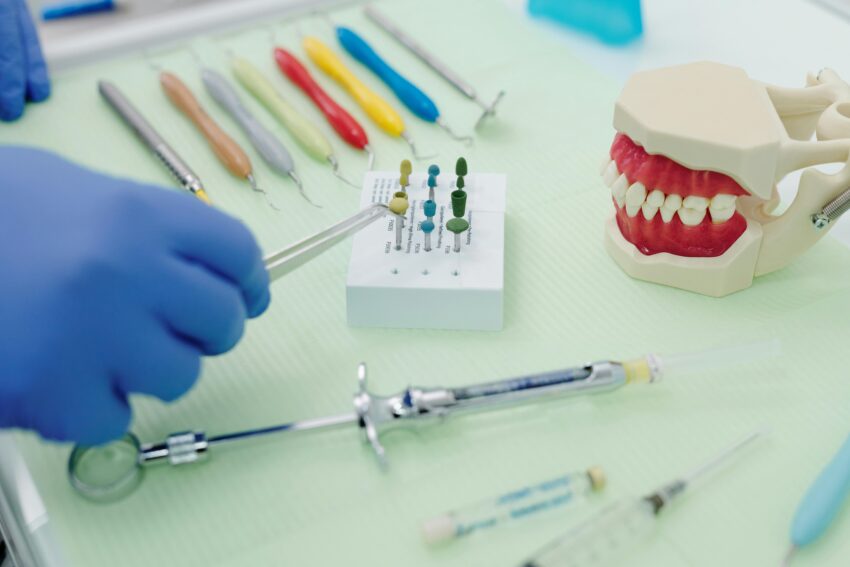Understanding the Cost of Dental Implants: A Comprehensive Guide
Dental implants are a modern, effective, and long-lasting solution for replacing missing teeth. While their benefits are widely recognized—from restoring full chewing function to preventing bone loss and preserving facial aesthetics—the cost of dental implants often becomes a major point of consideration for patients. This article will explore the various factors that influence dental implant pricing, break down the different cost components, compare it to other tooth replacement options, and offer guidance on how to make the most informed decision.
What Are Dental Implants?
Dental implants are artificial tooth roots, typically made of titanium, that are surgically inserted into the jawbone. Over time, the implant integrates with the bone (a process known as osseointegration), providing a stable base for a crown, bridge, or denture. Dental implants are renowned for their durability, functionality, and natural appearance, making them the preferred solution for many dentists and patients.
Average Cost of Dental Implants
In general, the cost of a single dental implant in the United States ranges from $3,000 to $5,000. This figure usually includes:
-
The implant post
-
The abutment (the connector)
-
The crown (the visible tooth replacement)
-
Consultation and X-rays
-
Surgical procedures
However, this is just a base cost. Several variables can influence the final price.
Factors That Affect the Cost
1. Number of Implants Needed
If you require a single implant, your cost will be significantly lower than someone needing full-mouth restoration. Full-arch implants (like All-on-4) can range from $15,000 to $30,000 or more per arch.
2. Location of the Dental Clinic
Geographic location plays a significant role. For example:
-
Implants in major cities like New York or Los Angeles tend to be more expensive.
-
Dental procedures in rural areas or overseas (e.g., Mexico, Thailand, Turkey) can be significantly cheaper due to lower overhead and labor costs.
3. Dentist’s Experience and Credentials
Highly skilled or specialized implantologists may charge more, but they bring precision, reduced complication rates, and better outcomes.
4. Pre-implant Procedures
Some patients may need preparatory treatments, such as:
-
Bone grafting: If the jawbone is too thin or soft to support an implant.
-
Sinus lift: To increase bone height in the upper jaw.
-
Tooth extraction: If a damaged tooth needs to be removed before implant placement.
These procedures can add anywhere from $300 to $3,000+ per procedure.
5. Materials Used
-
Titanium implants are most common and cost-effective.
-
Zirconia implants, while more aesthetic and biocompatible, are usually more expensive.
6. Type of Restoration
The final prosthetic restoration—whether a single crown, bridge, or denture—also varies in price depending on the materials and complexity involved.
Breakdown of Dental Implant Costs
Here is a general breakdown of the typical cost structure for a single dental implant:
| Item | Estimated Cost (USD) |
|---|---|
| Initial Consultation & X-rays | $100 – $500 |
| Implant Placement Surgery | $1,000 – $2,500 |
| Abutment Placement | $300 – $500 |
| Crown (Ceramic or Porcelain) | $1,000 – $3,000 |
| Total (Per Implant) | $3,000 – $5,000 |
If additional procedures (e.g., bone graft) are required, the total can climb to $6,000+.
Comparing Implants to Other Tooth Replacement Options
| Option | Cost Range | Lifespan | Maintenance | Aesthetic | Bone Loss Prevention |
|---|---|---|---|---|---|
| Dental Implants | $3,000 – $5,000+ | 20+ years | Low | Excellent | Yes |
| Dental Bridge | $1,500 – $3,000 | 10-15 years | Moderate | Good | No |
| Dentures (Full/Partial) | $1,000 – $2,500 | 5-10 years | High | Fair | No |
Although implants have a higher upfront cost, they offer better long-term value and fewer replacements or adjustments over time.
Does Insurance Cover Dental Implants?
Most basic dental insurance plans do not cover implants because they are considered a “cosmetic” procedure. However, some plans may:
-
Cover parts of the procedure (e.g., crown or extraction).
-
Offer reimbursement for medically necessary implants (e.g., due to injury or disease).
-
Provide discounts through in-network providers.
It’s essential to consult your insurance provider directly and check for:
-
Annual coverage limits
-
Exclusions
-
Reimbursement percentages
Financing and Payment Options
Because implants can be costly, many dental clinics offer financing options such as:
-
Monthly installment plans (in-house or third-party providers like CareCredit)
-
0% interest promotional periods
-
Dental savings plans (membership-based discounts)
Are Dental Implants Worth the Cost?
From a clinical and lifestyle perspective, yes. Here’s why:
-
Longevity: Implants often last a lifetime with proper care.
-
Functionality: They restore full chewing ability and speech clarity.
-
Aesthetics: Natural appearance that enhances confidence.
-
Health Benefits: Prevent bone loss, preserve facial structure, and maintain surrounding teeth integrity.
Over a 20-year period, dental implants may actually prove more cost-effective than bridges or dentures when accounting for replacement, repairs, and maintenance.
Tips to Reduce Dental Implant Costs
-
Get Multiple Quotes: Compare prices from several clinics in your area.
-
Ask About Bundled Packages: Some clinics offer discounts for multiple implants or comprehensive treatments.
-
Dental Tourism: Countries like Mexico, Hungary, and India offer quality implants at a fraction of U.S. costs—but research carefully for accreditations and reviews.
-
University Clinics: Dental schools often provide supervised procedures at reduced rates.
Final Thoughts
Dental implants are a significant investment in your health, function, and appearance. While the upfront cost may seem high, the long-term value, durability, and improved quality of life often outweigh the expense. Understanding what influences the cost—from surgical complexity to materials and location—can help you plan better and choose the best path forward.
Always consult a qualified dental professional, ask detailed questions about costs and procedures, and explore your financing options. With the right approach, dental implants can be both accessible and life-changing.
